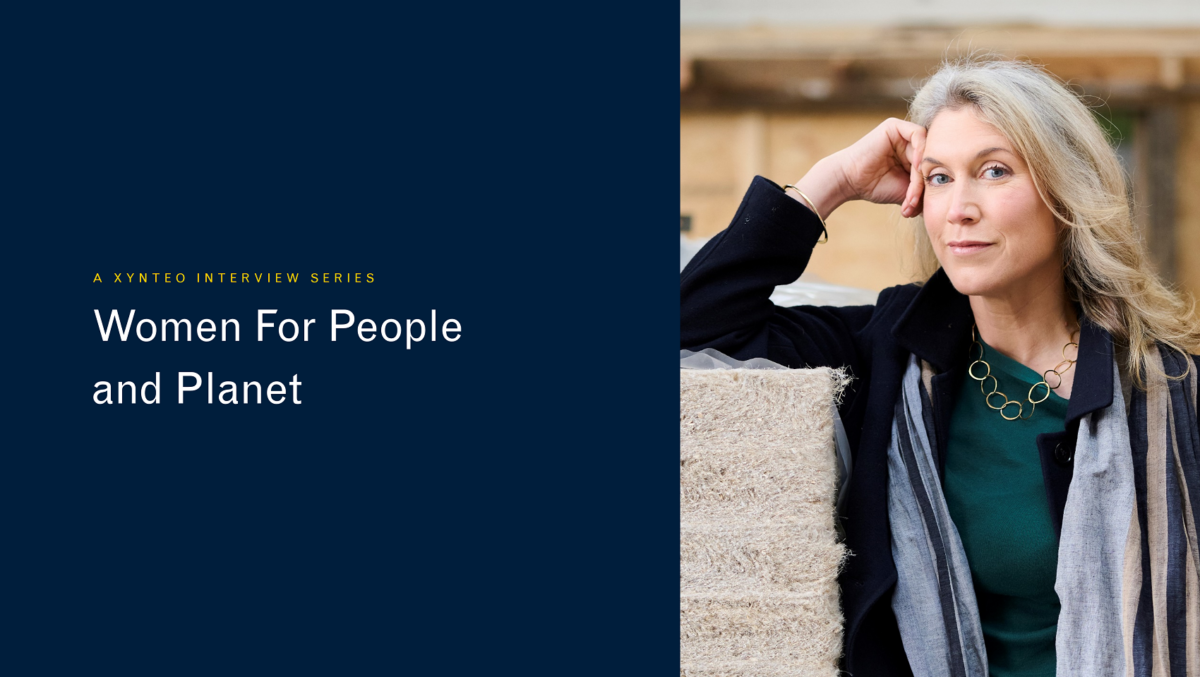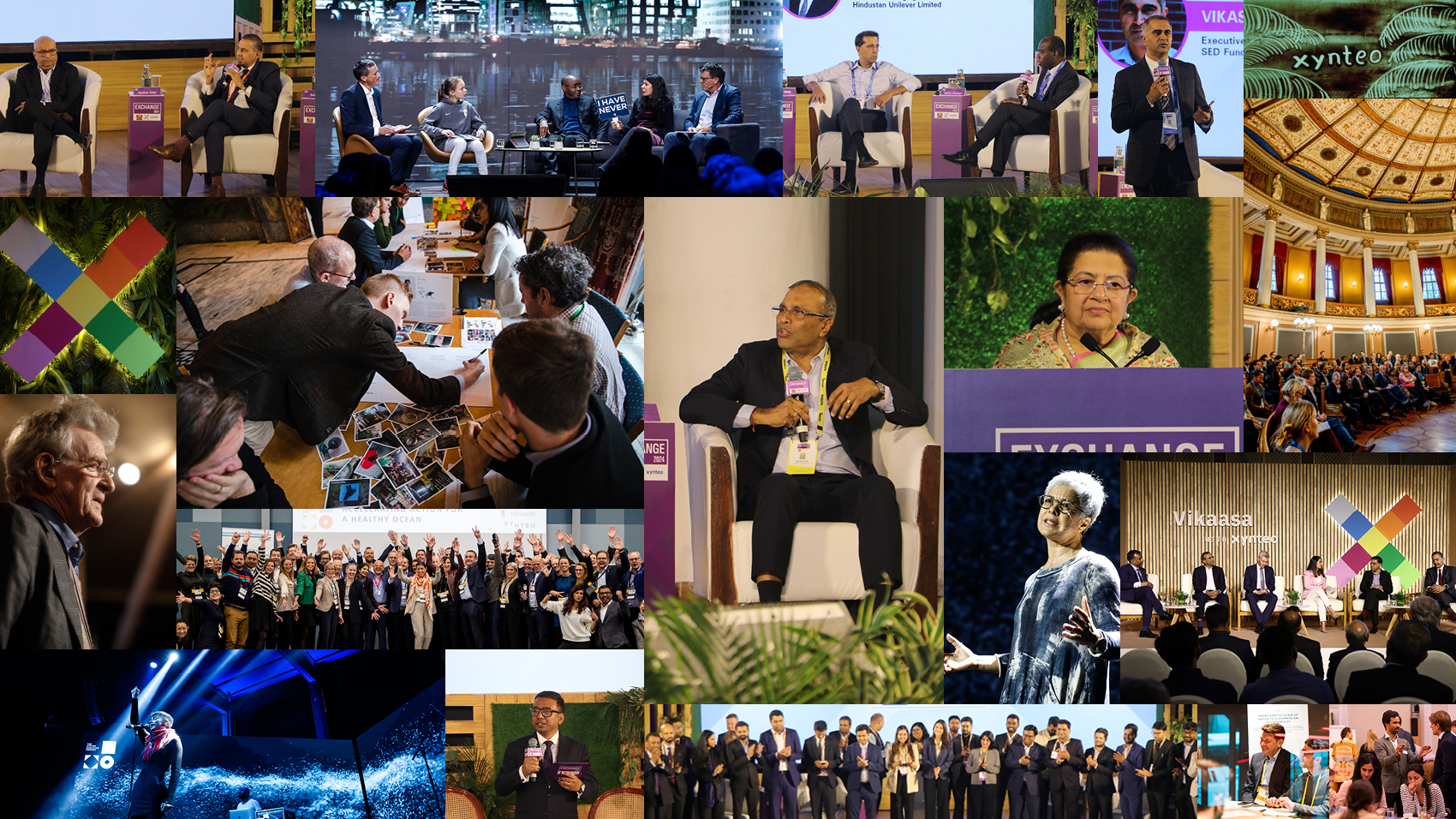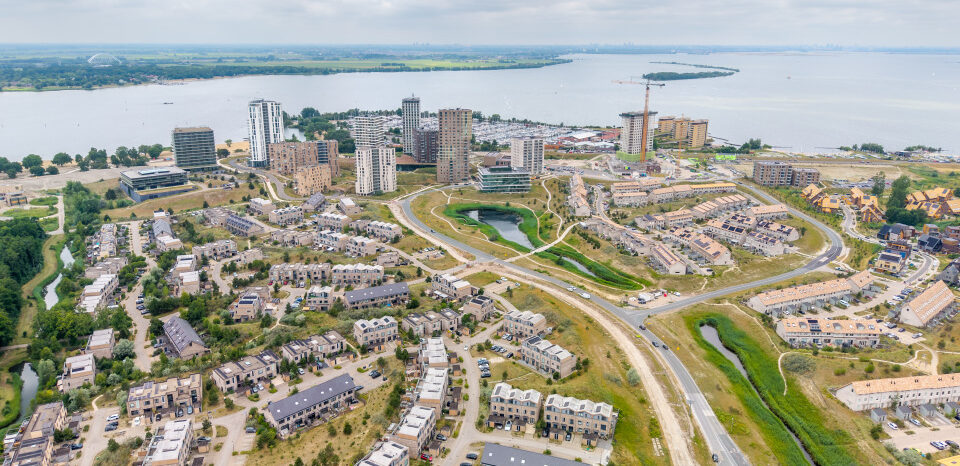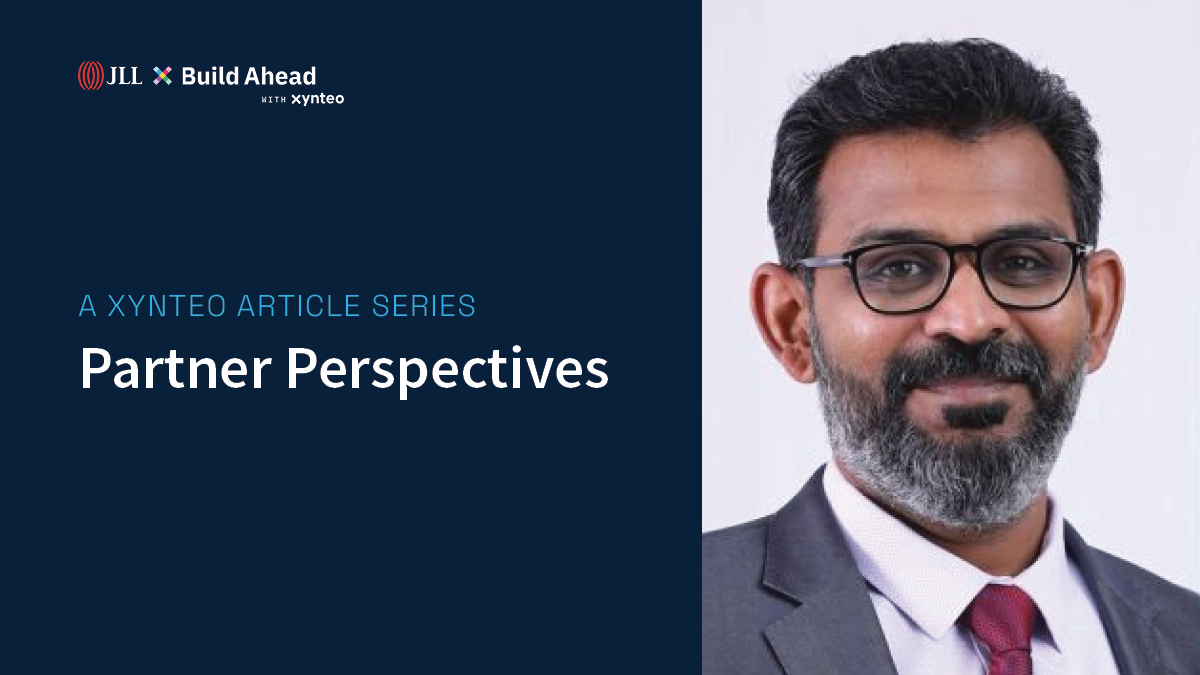A child who grew up in the woods (encouraged to pee on the compost heap), a young adult who traipsed around the continent pushing the conversation around sustainability (old fogeys mistook her for the assistant to the “boss”), and a woman who is now one of the UK’s leading experts in sustainable living—Joanna Yarrow specialises in making green living attractive and accessible and is helping create what should be the UK’s most sustainable neighbourhood.
Xynteo’s Eleanor Besley-Gould sat down with Joanna Yarrow – Chief Impact Officer at Human Nature to talk about her journey, what she has learnt, and how she sees the future of sustainability.
What does your personal journey towards sustainability look like?
Joanna: Looking back, I reckon my sustainability journey began when I was about 5. My parents bought a 64-acre piece of ancient woodland in Sussex and we started going there every weekend. They started to manage it productively and we moved there full-time when I was nine and lived in a caravan for a year while they built a house.
My parents were the 1970s-good-life-green-hippies well before it was fashionable. So I grew up literally peeing on the compost heap, recycling everything, growing our own mung beans and making homemade peanut butter. It felt a bit like child abuse at the time because as children, you want to be like everyone else. And back in those days, this way of life was a bit niche. So sustainable living was very much a lived experience for me as I grew up, and it instilled in me a sense of our inextricable link with the natural world.
But I was also conscious that I was quite different from my parents and their peers who were doing the kind of deliberate off grid, back-to-nature living, because at the same time I was syphoning off my lunch money to buy Vogue. I have always loved the other good things in life as well, so my process is always focussed on the desire to find ways to make life better for myself and also for as many people as possible, in ways that respect and enhance natural limits.
What are the skills and experiences that you’ve valued the most on this journey and have equipped you best?
Joanna: I studied Human Sciences at Oxford – I’ve always been very interested in what makes people tick. I didn’t quite know what I wanted to do next, so I ended up teaching Swiss businesswomen business communication skills in Zurich before I moved to Italy and lived in Rome and worked for Friends of the Earth. I was assistant to the vice chair of Friends of the Earth Europe. I went to lots of European conferences where I was able to recognise that there are common interests and concerns that affect us all, but that the contexts that we’re in: physically; culturally; and socially, means that you have to shape approaches and narratives very differently depending on context and audience.
After Rome, I came back to the UK and did a Masters with Forum for the Future in Leadership For Sustainable Development. It was an amazing course. As well as learning theory, we each did six one-month placements with leaders in different organisations. I wasn’t just learning about sustainability; I was also learning how the world works.
What opportunities have been the most important to making progress in your sustainability journey?
Joanna: During my masters, the penny that dropped for me was the critical role of communications and engagement with the sustainability agenda. There were NGOs full of passionate, motivated, brilliant people talking to each other. And then there were specialist technical people, talking to each other. There was some information in the news, which was either about pandas and storms or about international negotiations. But there wasn’t really anything tying it all back together to things most people care about to people’s everyday lives.
So I started working for a mix of corporates and NGO clients as a Sustainability Communications strategist – I worked with the Head of Corporate Affairs for Tesco, Royal Mail and the post office, and also with various NGOs. I then co-founded Beyond Green, a strategic sustainability consultancy which looked at where we live both how we live—places, communities and homes, lifestyles and behaviour change. I also wrote three books—very non-specialist, one was literally called ‘1,001 Ways You Can Save the Planet’. The others were How to Reduce Your Carbon Footprint and Eco-logical . This was before there were many books focusing on everyday sustainability actions for mainstream audiences. And I did broadcast media -I was the green advisor on GMTV, This Morning, and Tonight with Trevor McDonald, and I presented a BBC3 series called Outrageous Wasters. I also helped to conceive and fronted consumer behaviour-change campaigns such as Turn to 30 with Ariel and the Energy Saving Trust – normalising everyday behaviours (such as washing at colder temperatures) that have benefits for the individual and also add up to significant positive impact when scaled across the population.
Those projects were all about taking what were often seen as big intangible, distant, abstract science-y sounding scary problems and boiling them down to simple everyday messages that were relatable to anyone and actionable by many. On the back of this work focusing on sustainability from a behaviour change, lifestyle and consumer engagement angle, IKEA invited me to join their business. They had just put together their first global sustainability strategy, and my role as the first Head of Sustainability for the UK & Ireland was to put those principles into action for the business – from strategy and action plans to innovation, positioning and engagement and new business development. After four years I was invited to join the global team in a new role leading sustainable and healthy living worldwide, which was really looking at what the business could do realise its biggest area of potential impact – inspiring and enabling customers and other consumers to live more sustainably. So we moved to Sweden and spent three wonderful years there enjoying the Scandanavian lifestyle and the excitement and challenges of leading sustainable living initiatives worldwide.
And then COVID hit, so we moved back to the UK to be closer to family I was approached by M&C Saatchi, who wanted to set up a new sustainability business within the group (the world’s biggest independent communications group). The role evolved into a wider brief setting up a global people and planet strategy across all the Group’s businesses and territories as well as a new business bringing together sustainability strategy, communications, engagement and behaviour change.
Meanwhile, I was also helping to grow Human Nature – a campaigning development company that designs, builds and runs places that make sustainable living easy and attractive. Our first project – the Phoenix project in our hometown of Lewes – has been evolving over the past 3 year, and by last autumn it was becoming too much of a stretch to support both organisations, so last November
I became Chief Impact Officer at Human Nature, and still keep a little time for advisory roles such as the P&G Sustainability Advisory Board and as a trustee for the Human Nature Foundation.
ESG is in some ways great. But it’s also making everything about risk, compliance and de-risking business as usual – rather than innovation, collaboration, creativity and opportunity to design better ways of living, and of doing business.
What barriers have you faced?
Joanna: Early on, sexism and agism were real. I remember being in a meeting with a corporate client’s directors who’d come over from Brussels for a meeting with me: I sat there with them, with my notebook out, and they kept waiting and looking at the door. It turned out they assumed they were waiting for “my boss” because I was clearly the “secretary”.
Today, in business as well as in everyday life we tend to see the natural world as extra or ‘other’. And sustainability as additional, often costly, work or compromise. While the formalisation of ESG is in some ways great, because all of a sudden it’s taking these factors into account in the boardroom, it’s also making everything about risk, compliance and de-risking business as usual, rather than innovation, collaboration, creativity and opportunity to design better ways of living, and of doing business.
Add in the lack of connected thinking that we have as a society around the environment, and the way we’re so separated from each other’s experience and we have fundamental structural and cultural hurdles to overcome every day when we should be focusing all our energies on inspiring and enabling positive change.
What has been your proudest moment?
Joanna: I‘ve accumulated a few over the years! I have some pride and affection for my early projects seeking to bring sustainability to life for non-specialist audiences. The idea behind my books was to share simple ideas of actions that individuals can take everyday to both improve quality of life and make a real impact on the big issues they care about, particularly climate.
Of my broadcast work I particularly feel proud of Outrageous Wasters. We took families who led particularly wasteful lives through an immersive engagement experience: the House of Correction, which was an eco boot camp in Wales. They had to live a week unplugged from all their creature comforts – no running water, no electricity, no packaged food and so on. They undertook a series of challenges to try living differently, and we helped them to adapt their homes and everyday lifestyles. They were unsurprisingly big resistors, but the transformation was dramatic. And the power of lived experience seems to have stuck! Some of the participants still write to me now, 15 years later. One family now helps run a solar company, the daughter of another is now an environmental broadcast journalist.
One of the initiatives I’m particularly proud of from my time at IKEA is the Live LAGOMproject (Lagom means the “right amount is best” in Swedish). It’s social living experiment where co-worker and customer households take on different challenges – saving food, energy, water, waste, money, losing weight. They form real and online communities, support each other and share ideas. And then that information informs products and services and creates new learning networks. It was designed to be a one-year project in 2015 and is still going worldwide.
And today, I’m immensely proud of the work we’re doing at Human Nature to put all these principles into practice. We’ve just got planning permission for the Phoenix Project, a 685 home mixed-use neighbourhood in my hometown. I’m looking forward to creating places that provides the optimum conditions to inspire and enable a better, more sustainable way of life – both here in Lewes and on other sites at other scales across the UK.
To be inspired by all our latest interviews, visit our Women for People and Planet interview hub.
Read moreStay up to date with our latest interviews by following us on social media (LinkedIn I Twitter), or Contact Us to find out how we can help your leaders and organisation create people and planet-positive impact.



